Summer Safety
For many people, summer is a time for warm, sunny days, outdoor activities like swimming, vacations and picnics with family and friends. However, summer can also bring extreme heat, increased risk of dehydration, foodborne illness and other health risks. Recognizing these risks and taking preventative steps will allow you to enjoy your summer without paying the price.

Heat-Related Illness
Every year, thousands of people suffer from heat-related conditions (hyperthermia) like heat stress, heat exhaustion, and heat stroke. The Centers for Disease Control and Prevention estimates that every year, around 700 people in the U.S. die from excessive heat exposure. People suffer heat-related illnesses when their bodies cannot compensate for the heat and properly cool themselves. Older adults are more susceptible as their bodies return to normal temperatures more slowly and their bodies’ cooling mechanism is not as efficient. Being overweight, having poor circulation, having chronic medical conditions and high blood pressure, or taking certain medications can also increase your risk. Very high body temperatures may damage the brain and vital organs.
Protect yourself with these prevention tips:
- Air conditioning is the primary protective factor against heat-related illness and death. If you don’t have it, or to save money on your electric bill during the day's heat, visit air-conditioned shopping malls and public libraries to help you stay cool.
- During times of extreme heat, temperatures stay indoors.
- Schedule outdoor activities carefully, limit sun exposure and rest in shaded areas. Remember, the sun is hottest between 10 a.m. and 2 p.m.
- When outdoors wear appropriate clothing: lightweight, loose fitting and light colored. Don’t forget sunglasses and wide-brimmed hats.
- Avoid dehydration and drink plenty of fluids. Dehydration is common among older adults and can be life-threatening. Stay hydrated by drinking plenty of fluids, consuming fruits and vegetables, and avoiding caffeinated and/or alcoholic beverages that can act as diuretics. Don’t wait to drink until you are thirsty, as that can be a sign of dehydration!
- Always wear sunscreen. A sunburn damages your skin, causes a loss of body fluids and affects your body’s ability to cool itself. Sunscreen can also protect against skin cancer, which is strongly associated with ultraviolet radiation that comes from the sun. Look for a sunscreen with “broad spectrum” protection and SPF 30 or higher. Other skin cancer prevention tips include wearing protective clothing, avoiding midday sun exposure and seeing your doctor for a skin exam.
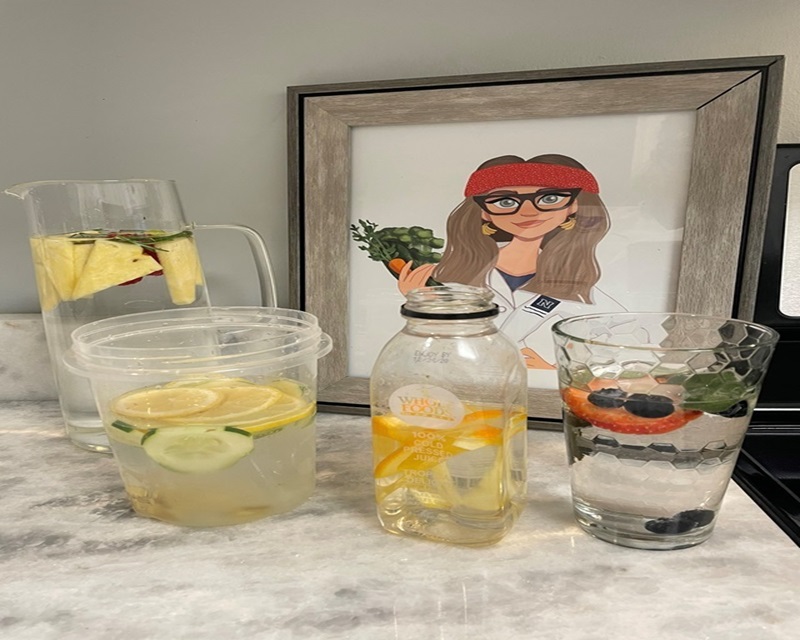
Summer Activities
As summer rolls around, outdoor and water activities are more common. These activities can range from swimming to gardening and can be both indoors and out. Research has shown that older adults who remain active have less depression, loneliness and more control over their lives. To find activities in your area, visit your local senior center or library or check your newspaper for local events.
- Water activities are abundant in the summer and may include swimming in community pools, pool parties with friends, water aerobics at a senior center, boating, or perhaps even paddleboarding! Remember always to be safe and follow water and sun safety precautions.
- More than two-thirds of older adults are not involved in regular physical activity. Take advantage of summer weather to enjoy walks, biking, golfing, and gardening to help improve cardiac health, or try an outdoor morning tai-chi class for better balance. These and other exercise activities can offer emotional benefits and improve overall health. Be sure to check with your doctor before starting any exercise program and plan your outside activities during cooler morning and evening hours.
- Look for community summer programs like a special museum exhibit, outdoor symphony concert, farmers market or a summer reading club. Some places offer summer ticket discounts (senior discounts, too) for shows, movies or plays.
- Volunteer during the summer or year-round at a summer reading program for kids, a local animal shelter, or church day camp, or become a Master Gardener or Park Ambassador. Organizations are always seeking volunteers, and the opportunities are endless. A recent study has found that helping others improves one's well-being and longevity.
- With less busy college campuses in the summer, perhaps this may be a good time to go back to school. You can take courses that earn credit towards a certificate program or degree or explore new areas for fun and enrichment. The University of Nevada, Reno (UNR) offers classes for older adults at its Extension Office in Southern Nevada and the Sanford Center for Aging and Osher Lifelong Learning Center on UNR’s campus. UNR OLLI membership is $85 a year or $50 per fall or spring semester. The University of Nevada, Las Vegas (UNLV), offers tuition-free courses for locals 62 or older, but only during the fall and spring semesters. During the summer, they must pay 50 percent of the regular cost. UNLV also hosts an Osher Lifelong Learning Institute, which offers a variety of classes, events and other opportunities for semi-retired and retired adults of all ages. Membership costs $175 a year or $90 per fall or spring semester and $40 each summer. Both university OLLI programs offer membership scholarships that are available for those who wish to apply.
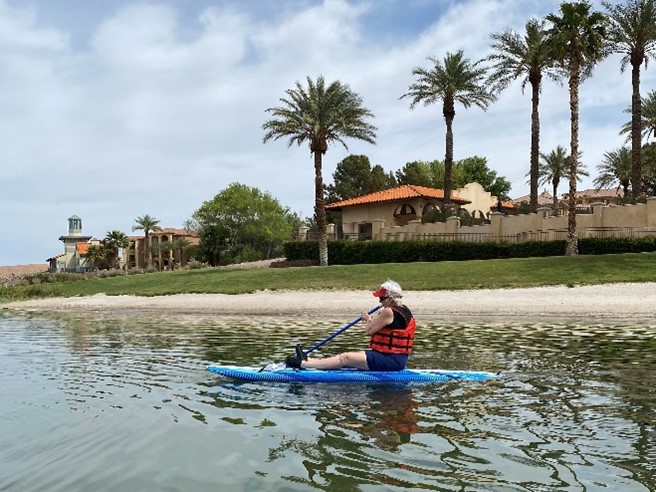
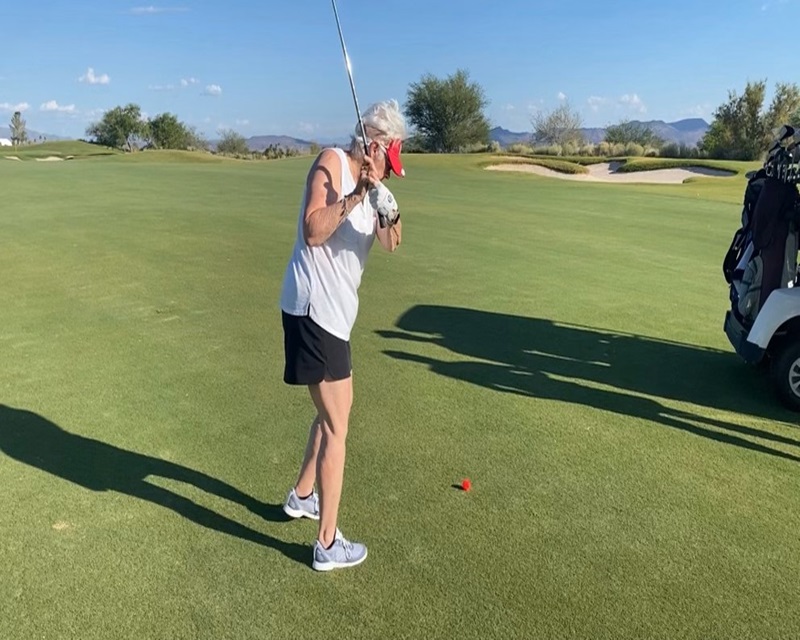
Whether traveling by car or plane to visit out-of-state family, RV-ing to a national park or touring another country - remember to use common sense, have a good time and follow a few safety tips.
- Wash your hands often to avoid becoming sick. Carry hand sanitizer.
- Safeguard your personal information, including credit cards, and save all your travel receipts to avoid theft or a stolen identity.
- Don’t forget the home you left behind. Make sure it looks “lived in” while you are a way to avoid burglary. Stop your mail and newspaper or any other home deliveries. Ask a trusted neighbor to help.
- Check https://parks.nv.gov/ to Explore Nevada.
- Remember to check weather.gov for current temperatures and weather forecasts.
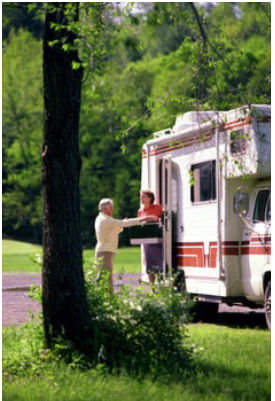
Summer Food Safety
During the summer season, many of us head outdoors to enjoy picnics at the park or backyard barbeques. Along with the hamburgers and potato salad, don’t forget food safety. The Centers for Disease Control estimates that 48 million people each year get sick by eating contaminated food. Foods contaminated by harmful bacteria and viruses can cause a foodborne illness (food poisoning) and older adults and children are considered most susceptible. Foodborne illness can occur within 24 hours of eating contaminated food, or even days or weeks later. Common symptoms of foodborne illness include diarrhea, nausea, vomiting, abdominal pain and fever. Food can become contaminated when we transport, store, prepare or serve it. It is important to use food safety techniques during every contact stage with food.
Seven Super Steps to Safe Food in the Summer
During warm weather, it is especially important to take extra precautions and practice safe food handling when preparing perishable foods such as meat, poultry, seafood and egg products. While warmer weather conditions may be ideal for outdoor picnics and barbecues, they also provide a perfect environment for bacteria and other pathogens in food to multiply rapidly and cause foodborne illness. Follow the suggestions below to Fight BAC!® (foodborne bacteria) and reduce the risk of foodborne illness this summer.
- Wash, Wash, Wash Your Hands. Wash your hands with soap and water before handling food. If no water is available, consider bringing your own water, soap, and towels. If you can't wash your hands, use a hand sanitizer containing at least 60% alcohol.
- Marinating Mandate. Marinate food in the refrigerator and don’t reuse the marinade on cooked food.
- Hot, Hot, Hot. When grilling foods, preheat the coals on your grill for 20 to 30 minutes or until the coals are lightly coated with ash.
- Temperature Gauge. Use a food thermometer to ensure food reaches a safe internal temperature: hamburgers should be cooked to 160ºF, steaks to 145ºF, chicken breast 165°F and fish to 145ºF.
- Stay Away from that Same Old Plate. Do not place cooked food on a plate that previously held raw meat, poultry, seafood or eggs and have plenty of clean utensils, plates and cookware on hand.
- To the Victor Goes the Spoils. Never let perishables (raw meat, poultry, eggs, cooked food, cut fresh fruits or vegetables) sit at room temperature for more than two hours before storing them in the refrigerator or freezer. When the temperature is above 90°F, store it for one hour.
- Icebox Etiquette. Always use a clean cooler filled with ice or an ice pack to keep food cold. A full cooler will maintain cold temperatures longer. Placing drinks in a separate cooler can help you avoid opening and closing the food cooler many times.
- Hit the Road. When traveling, transport the cooler in the air-conditioned part of your car rather than in a hot trunk. This includes your groceries from the store, too.
- It's Lunchtime. A packed lunch with perishable items like meat, cheese, or mayonnaise must be kept cold. An easy way to do this is to use a clean, insulated lunch bag with an ice pack.
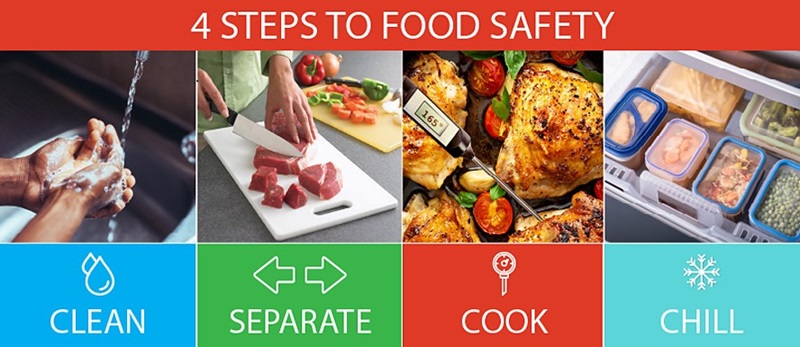
References:
- Centers for Disease Control and Prevention. (2020). Heat-related deaths – United States, 2004-2018. CDC (Accessed 2/29/24).
- National Institutes of Health. (2005). NIH News in Health: Safer fun in the summer sun & keep it cool in hot weather. NIH (Accessed 8/26/10).
- Center for Disease Control and Prevention. (2018) Estimates of foodborne illness in the United States. CDC (Accessed 2/29/24)
- The Partnership for Food Safety Education (2024). Seven super steps to safe food in the summer. Fight BAC (Accessed 6/21/24).
- Senior Wellness Series (2002). Active aging. University of Nevada Cooperative Extension, FS-02-06.
- Senior Wellness Series (2004). Transporting food safely. University of Nevada Cooperative Extension, FS-04-05.
- Senior Wellness Series (2007). Reducing personal risks of accidental falls. University of Nevada Cooperative Extension, FS-07-07.
For more information, please get in touch with Natalie Mazzullo at (702) 222-3130 or email HealthyAging@unr.edu.


